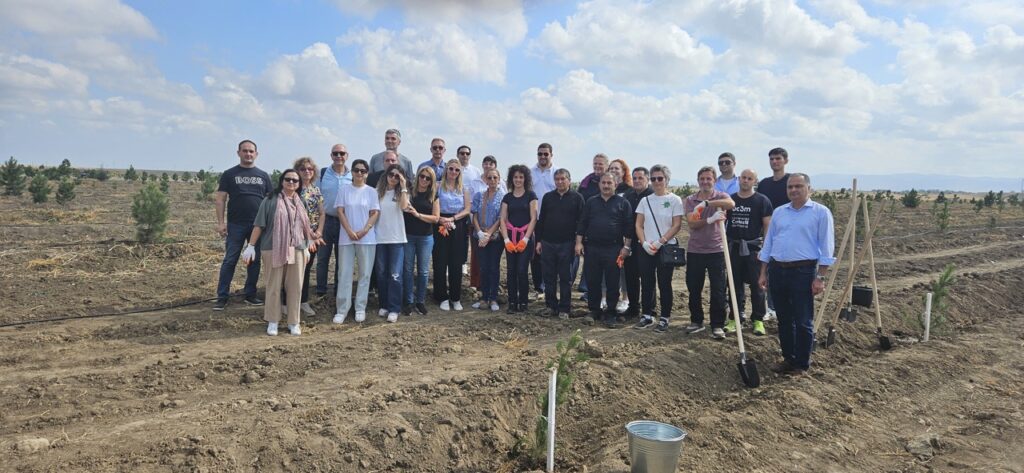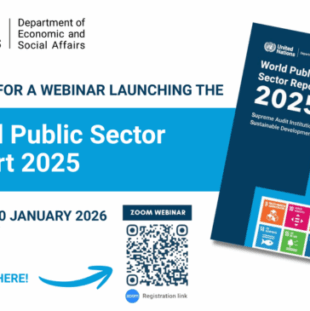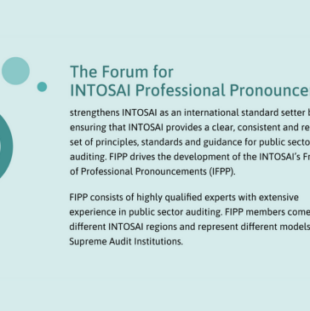EUROSAI Working Group on Environmental Audit Annual Meeting 2024
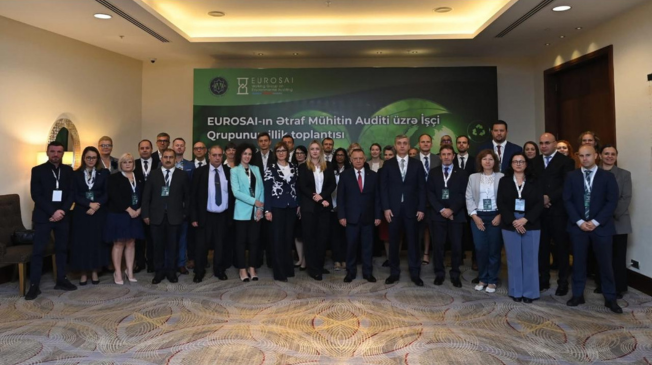
By: Azim Abasov, Head of the Audit of State Revenues and Economic Fields Department, PhD
On October 3-4, 2024, the Chamber of Accounts of the Republic of Azerbaijan hosted the EUROSAI Working Group on Environmental Audit annual meeting in Baku, Azerbaijan. The main theme of the meeting was “Extreme weather events and preparedness strategies”.
Opening the event with an introductory speech, the head of the Polish Supreme Audit Office stated that the conducted audits show that extreme weather conditions are causing more damage to the environment. He highlighted the serious impact of the devastating floods in Europe and pointed out the need for an effective anti-flood infrastructure to deal with crises.
The Chairman of the Chamber of Accounts of the Republic of Azerbaijan Vugar Gulmammadov emphasized the importance of hosting the meeting of the Working Group. He noted that according to the relevant Decree of the President of the Republic of Azerbaijan, 2024 was declared the “Year of Solidarity for the Green World” in our country, at the same time, in November of this year, the 29th session of the Conference of the Parties to the UN Framework Convention on Climate Change – COP29 is planned to be held in Baku. The Chairman stated that the holding of the annual meeting in Baku this year, increases the responsibility of the Chamber of Accounts, and requires more effective activities together with the participants of the meeting in order to realize the expectations from this event.
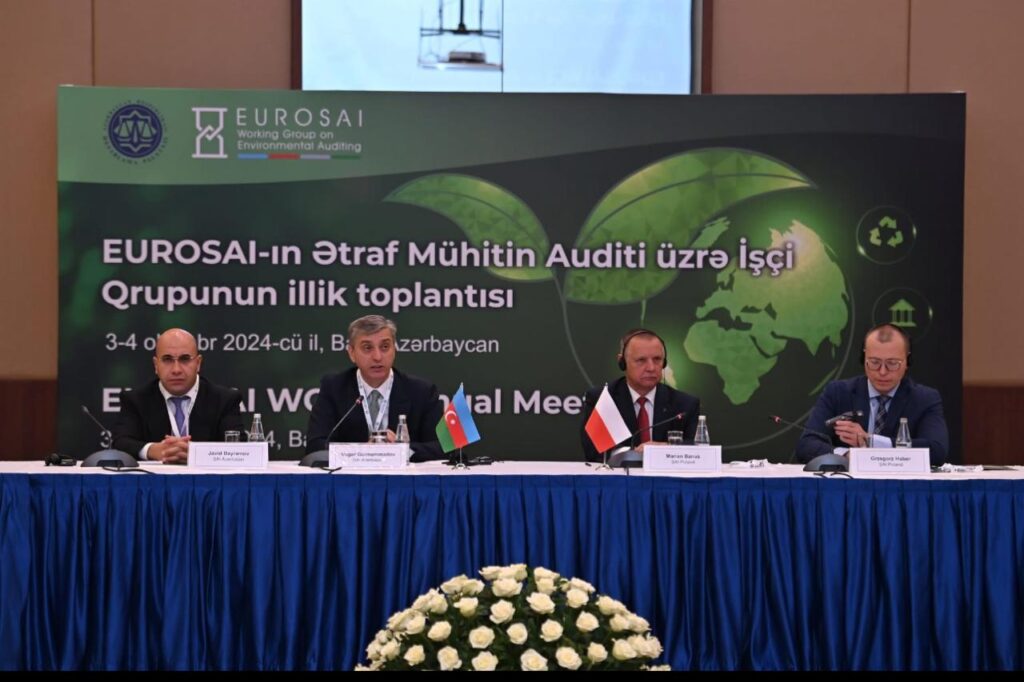
Later, the Chairman gave information on the challenges that emerged during the environmental audits conducted by the Chamber of Accounts and current implementation status of the ClimateScanner initiative.
During the meeting, more than 50 representatives of 19 SAIs discussed topics on “Supporting preparedness for disasters”, “Extreme events understanding, looking towards adaptation and mitigation”, “Coordinated audit in the fight against desertification, forest and wildland fires”, “Fire protection in national parks”, etc.
Representatives of most Supreme Audit Institutions and other organizations made presentations and put forward proposals on the topics of extreme weather conditions and preparedness strategies. Azim Abasov, head of the Audit of State Revenues and Economic Areas Department of SAI Azerbaijan made a presentation on “Measures to reduce the natural disaster risks”.
Also, the speakers at the event stated that speeding up emergency medical services, increasing the number of professional rescue teams, providing modern equipment necessary for rescue operations, and effective communication will serve to reduce the risk of natural disasters. In the presentation, it was noted that the protection of critical infrastructure such as energy, water supply, communication and transport from extreme weather events, as well as the application of sustainability standards in the construction of new buildings should be focused on.
The meeting was followed by seminars on “Climate risks assessment” and “How to assess meeting goals of resilience to natural disasters?”, moderated by the European Court of Auditors and “Response and environmental consequences of natural disasters or extreme weather events ” moderated by SAI Czech Republic. During the seminars, representatives of the participating countries discussed the problems and other important issues faced by their countries related to the audit of the natural disaster.
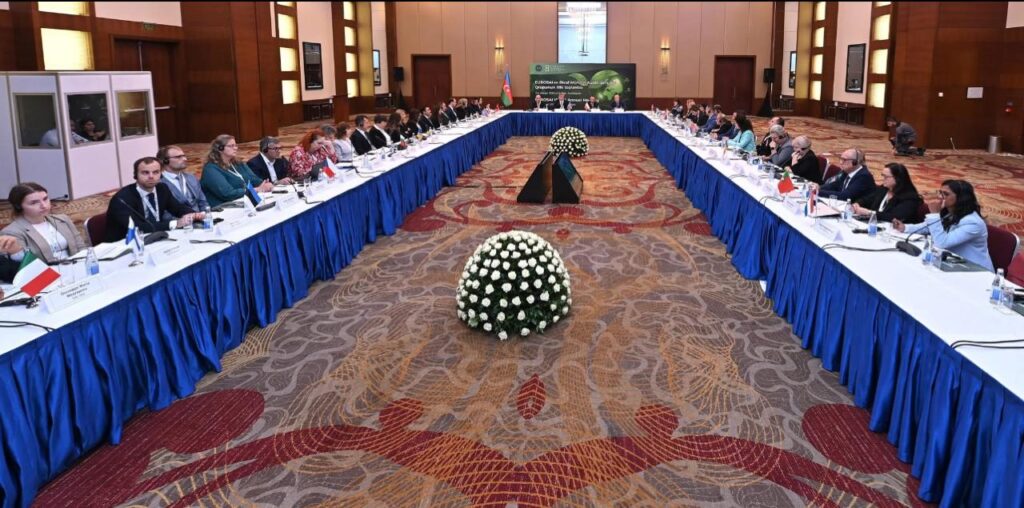
The seminar participants voiced many proposals and recommendations related to the prevention, reduction and audit of natural disasters:
- A population relocation plan during floods should be drawn up, and according to the information of the early warning system, their evacuation should be carried out before a natural disaster occurs.
- Measures to prevent forest fires should be taken in advance, requirements against fire danger should be determined for the activity of public catering facilities and the population in the forest area, the circumstances that caused the fire should be investigated, and monitoring should be carried out using observation tools.
- Weak coordination among the organizations involved in the prevention of natural disasters, lack of clear division of responsibility hinders the implementation of the measures.
- Emergency situations damage agriculture more. Improper management of the impact of emergencies in agriculture leads to soil degradation and water pollution.
Later, the event continued with a social program. Representatives participating in EWGEA annual meeting visited the liberated areas of Aghdam region.
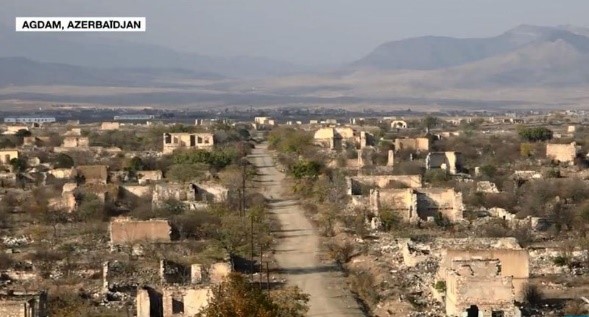
During the visit, the participants of the event were given a visual demonstration of the damage caused to the environment of the regions occupied by Armenia, such as the Aghdam region, in the territories of the Republic of Azerbaijan during the occupation and the trees were planted in Aghdam.
Then the guests got acquainted with extensive construction works and the conditions created in the territories liberated from the occupation.
Later, the employees of the Mine Action Agency of the Republic of Azerbaijan informed on the consequences of contamination of the territories with mines by Armenia and cleaning works carried out in this direction in the period after the liberation of the territories from occupation. The trip participants watched the process of decontamination of mines found in the area.
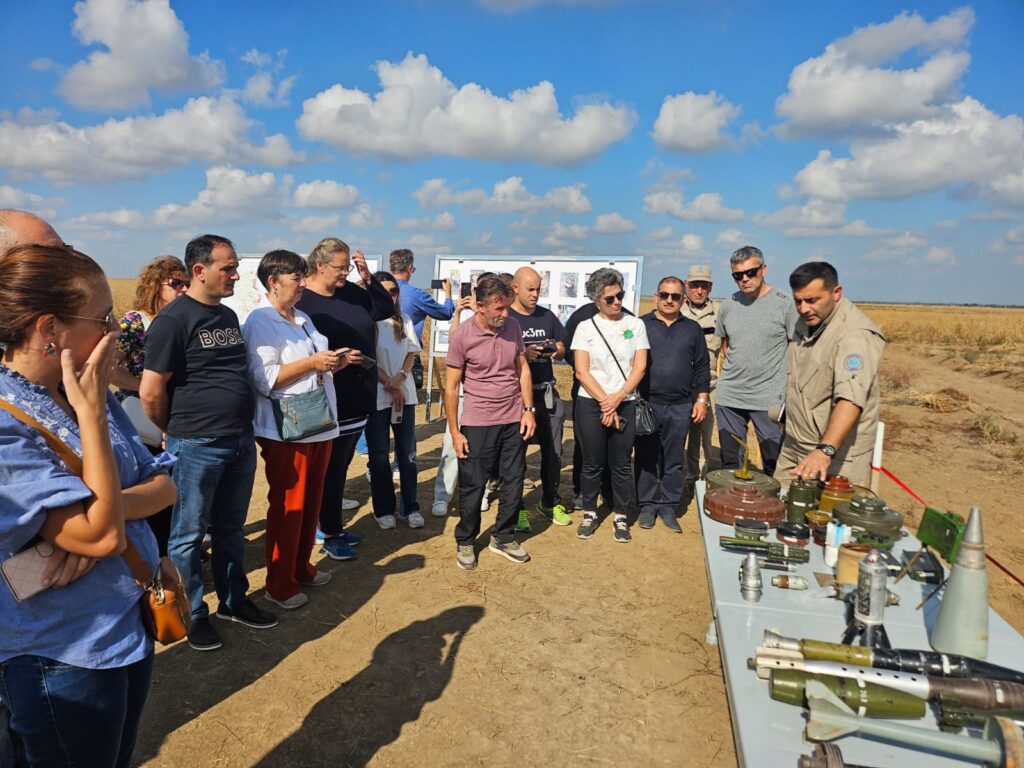
At the same time, during the visit, the participants were informed on the lowering of the Caspian Sea level and the deterioration of its ecological condition due to the climate change impact, the rehabilitation of degraded lands, the cleaning of contaminated lands, the drying up of Lake Hajigabul due to climate change and the destruction of its ecosystem.
During the visit, the members of the working group stated that they got practical information on the climate change impact on the environment and the issues related to the scope of the working group and what they saw left a deep impression on them, and they highly appreciated the activities of improving the ecological situation in the liberated territories of Azerbaijan and creating zero-emission smart cities and villages.
